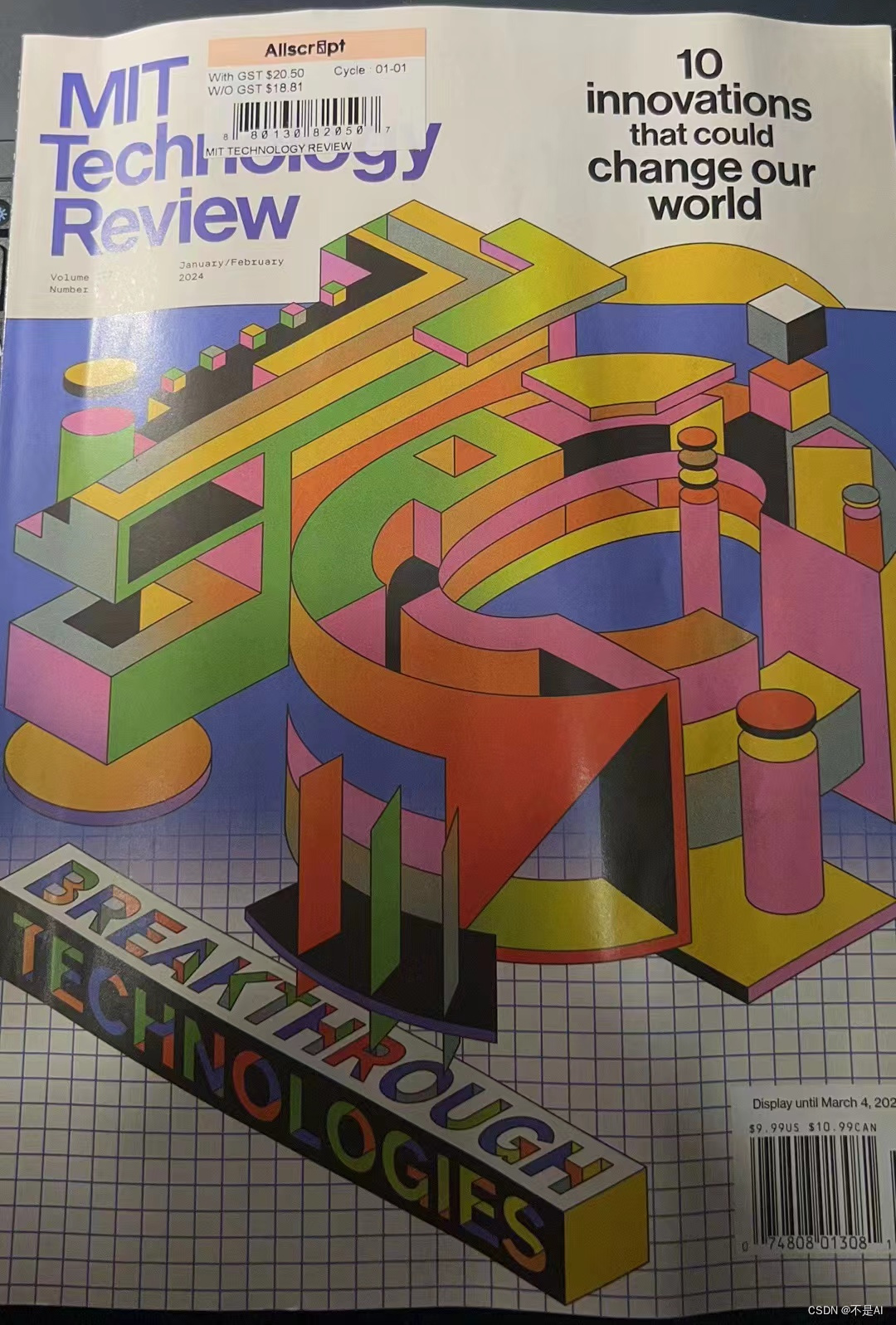往期书评:
【精华】麻省理工学院 MIT 技术双月刊(Bimonthly MIT Technology Review)2023 年 9/10 月刊荐书 Book reviews
【精华】麻省理工学院 MIT 技术双月刊(Bimonthly MIT Technology Review)2024 年 3/4 月刊荐书 Book reviews
Book reviews from MIT

1. Uncertain: The Wisdom and Wonder of Being Unsure By Maggie Jackson (Prometheus Books, 2023)
In a world where swift resolutions and assurances are often sought, journalist Maggie Jackson contends that embracing uncertainty is precisely what enables us to envision the unimaginable and find strength in difference and difficulty. From a surgeon’s operating room to the AIlab developing an “I don’t know” robot, the scenarios described here invite readers to seek the unsung value of not knowing.
2. White Holes By Carlo Rovelli (Riverhead Books, 2023)
In explaining his hypothesis that black holes can turn into white holes (theoretical cosmic regions that nothing can enter), Rovelli writes, “I do not know if it is correct. I do not even know if white holes actually exist.” For this theoretical physicist, science is all about the journey, not the destination, and his book is as poetic and playful as it is rigorous: “Are they really out there?” he asks. “Who knows…I would love it if it were the case.”
3. The Blue Machine: How the Ocean Works By Helen Czerski (Norton, 2023)
We have built a culture of ignoring the realities of living on a finite planet, says Czerski, a physicist and oceanographer. She believes we have especially taken the ocean for granted——at our peril. Ocean systems are changing now, she writes, and “the best immediate action is to stop causing the damage. But longer term interventions to repair the damage that’s already been done are going to be complicated and we can’t run away from that complication.”
4. Women in Science Now: Stories and Strategies for Achieving Equity By Lisa M.P. Munoz (Columbia University Press, 2023)
Recalling her first days as an engineering student at Cornell in the mid-1990s, science writer Munoz says, “I did not feel out of place. I believed it was where I belonged. Then I started my first-year engineering courses and things changed.” She argues that the current “leaky pipeline” metaphor needs to be retired as a way of describing the forces at play for women in STEM: “Women are not dripping through the holes in the system; they are being pushed out of a system that historically did not want them in the first place, even if it wants them now.” Combining first-person accounts from scientists with empirical research, Munoz aims to offer a path toward making the sciences more inclusive and equitable.
5. The Dimensions of a Cave By Greg Jackson (Macmillan, 2023)
In this unsettling novel, a modern-day retelling of Joseph Conrad’s Heart of Darkness, investigative reporter Quentin Jones uncovers a covert government program that is developing a lifelike virtual reality——only to have the story he’s written on it killed by higher-ups. Digging deeper, he discovers VIRTUE, cutting-edge technology that simulates reality during interrogation, and things really get complicated as his physical and digital worlds collide.
6. Dust: The Modern World in a Trillion Particles By Jay Owens (Abrams, 2023)
Dust, explains writer and researcher Jay Owens, “is matter at the very limit point of formlessness, the closest ‘stuff’ gets to nothing.” She first started thinking seriously about it while procrastinating on her dissertation and would later come to see that “the dust under your sofa contains the world.” When she got caught in a dust storm en route to the Mojave Desert, she realized that she saw in the substance “the ghost of stories I might come to tell——of nuclear fallout, volcanic ash and air pollution, of climate modelling, space science and geoengineering.” And also a new dissertation topic. Ultimately, she writes, “dust offered a route into facing the catastrophe of our time: the climate crisis and all its kindred ruptures into the biogeochemical systems of our planet.”


























 被折叠的 条评论
为什么被折叠?
被折叠的 条评论
为什么被折叠?










